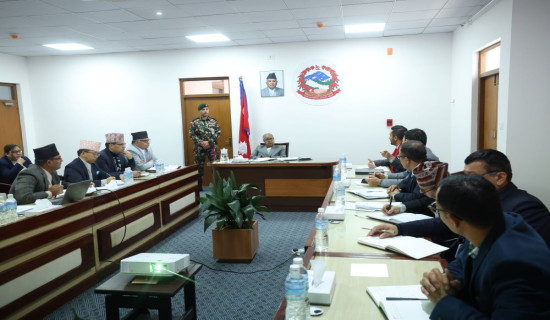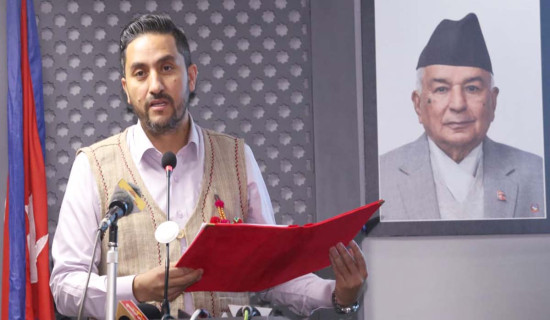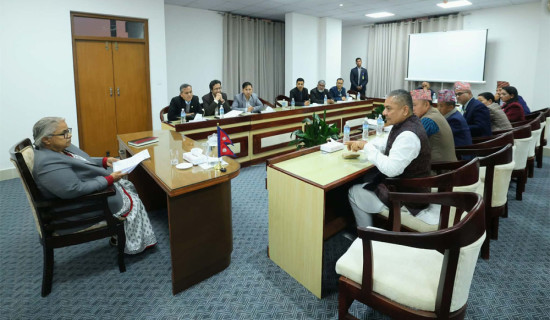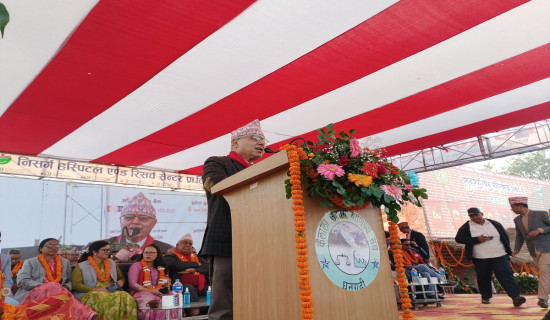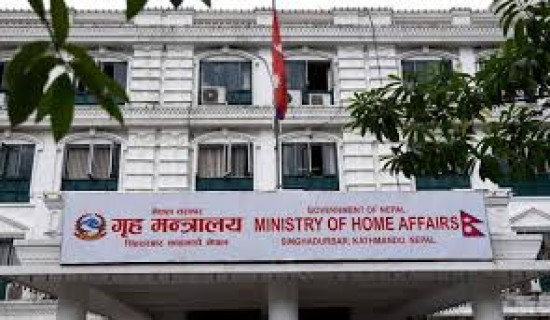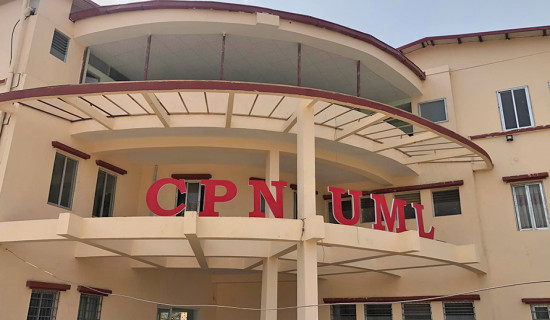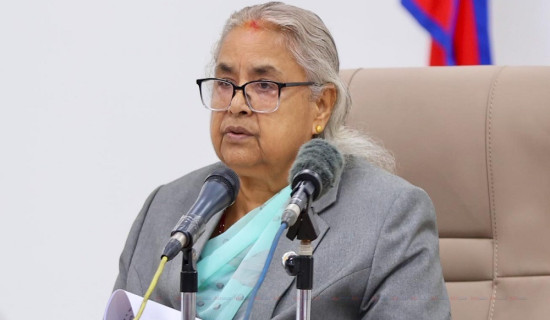- Tuesday, 9 December 2025
Glacial melting was one of the major challenges of Nepal: PM Oli
Kathmandu, Aug 7: Prime Minister KP Sharma Oli stated that Nepal has not made any mistakes regarding carbon emissions, but rather the country is simply bearing the consequences of others in terms of the impacts of climate change.
Our carbon emissions are negligible, yet we are hugely impacted by climate change, and Nepal is one of the major victims of this.
At a side event entitled “Glacial Melt and Beyond: Unraveling the Climate Challenges Impacting LLDCs” of the Third United Nations Conference on Landlocked Developing Countries at Awaza in Turkmenistan on Thursday, the PM said that as a Himalayan country, glacial melting was one of the major challenges of Nepal.
He added that the Himalayas are not only a source of water, lives and livelihoods of billions of people downstream, it is our identity, national pride and our present and future.
"Not only so, Himalayas and Oceans are interlinked, and they recharge each other. Himalayas are cooling centers of the planet earth. But, unfortunately, this is vanishing," the PM added.
The issue of glacial melt is not just an environmental concern for countries like Nepal; it is a constant threat, striking at the heart of our development, security, and survival, according to the PM.
Oli shared that Nepal has already been victims of devastation of glacial lake outburst floods. "Recently on 8 of July, in a clear day, glacial lake outburst caused catastrophic floods in the Lende River in Rasuwa district which swept away connecting bridge between Nepal and China. The flood caused death tolls of about 20 people and damaged huge infrastructure," the PM shared.
Such climate-induced disasters are occurring time and again and we are afraid that this may increase in the days to come, he added.
On the occasion, the PM stated that our agriculture, hydropower, tourism, and biodiversity– all climate-sensitive sectors–are increasingly at risk.
"These threats extend beyond our national boundaries. What happens in our mountains has cascading effects across borders, regions, and generations," the PM viewed.
The PM stated that under the current emissions trajectories, the Himalayan region may lose up to two-thirds of its glacier volume by the end of this century.
Saying that the rivers born in the Himalayas—the Ganges, Brahmaputra, Indus and Mekong, among others, —are lifelines for billions, PM Oli mentioned that as glaciers recede, these river systems will dry up, threatening water availability, agriculture, and energy security.
"The melting of our glaciers is not simply a loss of ice—it is a loss of lives, livelihoods, heritage, and hope. The cry of the glaciers is not silent. It is loud, and urgent. It is a plea not just for action, but for justice."
The PM viewed that we can save our Himalayas with concrete and concerted actions and the speed of glacial melting could be reduced through collection efforts.
PM Oli also shared the world community that Nepal stands ready—to act, to partner, and to lead—so that the voices of the Himalayas does not fade beneath melting ice, but rises to inspire global climate justice.(RSS)



